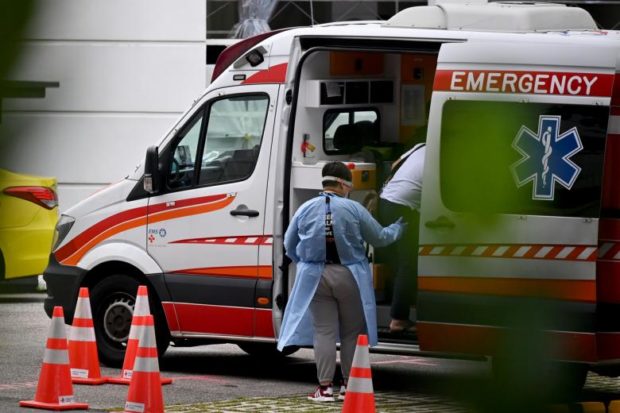Unvaccinated 92-year-old woman is first Omicron-related death in Singapore

The woman had no known medical history and caught the virus from a family member, said MOH. FILE PHOTO: The Straits Times/Asia News Network
SINGAPORE – A 92-year-old unvaccinated woman has died from complications related to the Omicron Covid-19 variant – the first Omicron-related death in Singapore.
In a statement on Saturday (Jan 22), the Ministry of Health (MOH) said the woman had no known medical history and caught the virus from a family member.
READ: Omicron cases now make up 17% of COVID-19 infections in Singapore
She died about 10 days later on Thursday, MOH added.
Upon investigation, doctors have concluded that the death was due to Covid-19 infection by the Omicron variant, said MOH.
Article continues after this advertisementMOH said: “To her family and loved ones, please accept our deepest condolences. The Ministry of Health and our healthcare workers will continue to do whatever we can to care for all our patients.”
Article continues after this advertisementThe latest reported death comes after the multi-ministry task force announced at a press conference on Friday that Singapore is likely to see a “significant wave” of Covid-19 cases as the more infectious Omicron variant spreads through the community, which could strain its healthcare capacity.
Trade and Industry Minister Gan Kim Yong said on Friday that about 70 per cent of daily cases are now of the Omicron variant, which has become the dominant strain in place of Delta.
This proportion could be even higher – close to 90 per cent or more, added the minister who co-chairs the multi-ministry task force handling the pandemic.
On Friday night, the Republic reported 3,155 new Covid-19 cases, up from 1,472 the day before.
Finance Minister Lawrence Wong, who co-chairs the task force with Mr Gan and Health Minister Ong Ye Kung, said on Friday it is very likely that the Omicron peak will exceed the previous peak from the Delta variant.
He said Singapore’s population could easily see “20,000 to 25,000 infected cases a day”.
But he stressed that the focus should not be on headline infection numbers, but on the number of people who are severely ill and who need hospital or intensive care.
To protect seniors and healthcare workers, the authorities will suspend in-person visits to all hospital wards and residential care homes for a period of four weeks, from Jan 24 to Feb 20.
MOH added on Friday that hospitals and homes will have the discretion to allow visitors for exceptional cases, for example, if the patient or resident is critically ill.
Meanwhile, existing safe management measures, such as dining in groups of five, will remain through the Chinese New Year festive period to lower the risk of transmission and reduce the stress on the healthcare system, said Mr Gan.